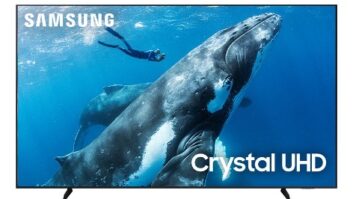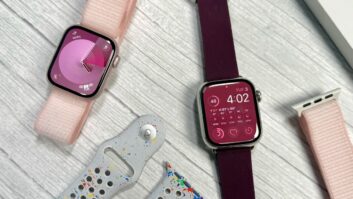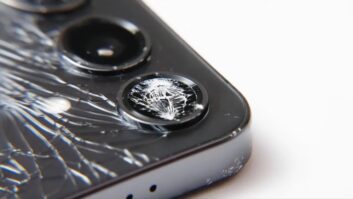SAN FRANCISCO – A federal jury’s finding that 25 Samsung smartphones and tablets infringed on one or more Apple patents could, if upheld, put a temporary dent in Samsung’s and Android’s market share and delay future Android smartphone and tablet launches as vendors pore over their designs to ensure that none infringes Apple patents, analysts said.
The verdict, if upheld after a planned Samsung appeal, could also drive some vendors to increase their focus on the Windows smartphone platform because, so far, Apple has concentrated its legal fire against handset vendors offering phones that use the Android OS, whose market share exceeds Apple’s OS share by a wide margin.
Analysts, however, doubt the decision will trigger a large-scale abandonment of the Android OS.
The decision does not affect Samsung’s latest high-profile products, the Galaxy Note smartphone/tablet hybrid, the Galaxy Note 10.1 tablet, or the flagship Galaxy S III smartphone, although the latter is the subject of a separate Apple patent suit. The jury decision, however, does affect multiple Galaxy SII smartphone versions, which are among the eight phones for which Apple is seeking a temporary sales ban.
The court previously issued a temporary sales injunction on the Galaxy Tab 10.1 Wi-Fi tablet.
Apple said it is reserving its right to ask for a permanent injunction on the sale of all 28 devices.
Canaccord Genuity technology analyst Michael Walkley commented that “while a ban would likely increase Apple’s leading smartphone share in the U.S. market, we believe this verdict could lead to Samsung also delaying near-term product launches as it attempts to design around Apple’s patents.” Other handset vendors such as HTC, Sony and LG “will review this patent verdict and potentially alter and delay planned Android smartphones and tablets,” he added.
“There will certainly be some short-term Android pullback,” agreed IDC analyst William Stofega. “This could be a big lift for Microsoft,” he added, because the Windows Phone 8 user interface is so different and therefore less likely to infringe on Apple patents.
Analysts doubt the decision will trigger a large-scale abandonment of Android even under the potential threat of Apple lawsuits because the Android OS, unlike Microsoft’s OS, is free to vendors. Analysts also pointed out that vendors can easily design around the design and software patents at issue. “You can bet Samsung had guys working overtime to do workarounds,” Stofega said.
Three of the six Apple patents upheld by the federal district court jury related to design, including cosmetics and the look and feel of the user interface, Stofega noted. These items can be changed “relatively quickly,” he noted. Three other technical patents involved how things work.
One thing that might have to change if an appeal is successful is the grid layout of apps on Android handsets, Stofega noted. Such things as spacing between icons might have to change, he said, but the workaround “will be pretty easy.”
For its part, Android inventor Google said “most” of the patents covered by the verdict “don’t relate to the core Android operating system,” though the company declined to mention which ones. A court of appeal, however, “will review both infringement and the validity of the patent claims,” the company said.
That appeal, planned by Samsung, could postpone the verdict’s potential impact on other handset makers, but in the short term, Samsung sales could be hurt if the federal judge approves of Apple’s request to temporarily ban the sale of eight Samsung smartphones.
A Dec. 6 hearing is set for Apple’s request for a temporary injunction on the sale of the following eight smartphones: the Galaxy S 4G, Galaxy SII on the AT&T network, Galaxy SII Skyrocket, Galaxy SII on the T-Mobile network, Galaxy SII Epic 4G, Galaxy S Showcase, Droid Charge and Galaxy Prevail.
All are currently on the market, and they were chosen because they are higher-priced, higher-margin handsets whose sales loss would have a greater impact on Samsung’s profits, Stofega said.
The eight are among the 25 handsets and tablets found to infringe on one or more patents. They include the Captivate, Continuum, Exhibit 4G, Fascinate, Galaxy Ace, Galaxy Indulge, Galaxy S, Galaxy S II (unlocked), Galaxy Tab, Galaxy Tab 10.1, Gem, Infuse 4G, Mesmerize, Nexus S 4G, Replenish, Transform and Vibrant.
Whichever way the injunction request goes, and no matter how the appeal of the infringement verdict goes, analyst Jeff Kagan said, “Long term this won’t have any real impact on Apple, Samsung or Google with their Android … whether they have to pay a licensing fee or whether they have to pull it off the market, it will only be temporary until Samsung rolls out their own version.”
For his part, Neil Mawston of Strategy Analytics said Nokia and Microsoft “may eventually come to be viewed by carriers as more patent-friendly than Android.” In addition, “Apple will be seen by some consumers and operators as a patent bully, but its successful court case strengthens the iOS ecosystem.”
Apple’s successful suit, however, could ricochet, he said. “Apple must keep its fingers crossed that the stricter patent environment does not encourage disruptive innovation from competitors like Google in the longer-term. Difficult situations can inspire ingenious products.”













